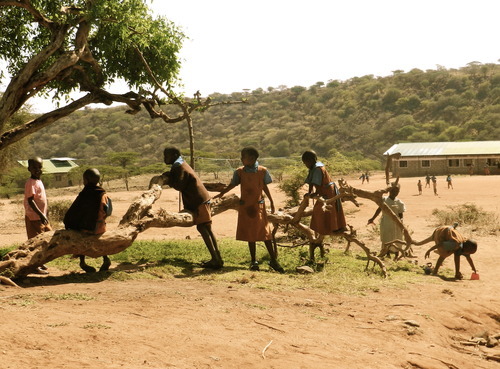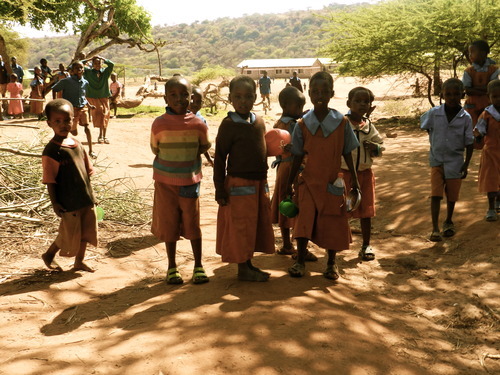
Leparua is a primary school of just under 300 students at Lewa Conservancy, in Laikipia. It is a mixed government school, but like so many I have seen, by the time standard 8 is reached, the boy to girl ration drops from 1:1 to about 3:1. This sad reality is produced from a combination of factors – the main ones being that as girls reach the age of puberty (and thus are marriageable), they tend to drop out, or get pulled out of school.

In response to this, the Lewa Education Programs (LEP) initiated a girl empowerment program, to encourage girls to finish primary school, and hopefully continue on to secondary school. When the Field-Marsham Foundation agreed to upgrade the existing library at Leparua, we were introduced to another challenge – the lack of a girls boarding facility, and the results this had on the girls, when combined with the new lighting that had been installed in the library.
Let me explain.

Although the current library is very short on resources, electricity and lighting were installed in the space to provide a place where students could study after sunset (keep in mind that in Kenya, darkness comes around 6:30pm, year round, and in this area, the students do not have lighting at home to study past this hour). Overall (and especially for the boys) this is great, because it means the students can stay at school and study past sunset. However, they still need to walk home after, and for girls walking home in the dark, this proved to be a serious vulnerability, and meant that girls were having to decide to study less, or risk sexual assault trying to get home after.

In trying to keep the girls safe whilst providing a space for them to study (we need as many girls staying in school as possible), a proposal was submitted to fund the building of a girls dormitory, which the Field-Marsham Foundation has agreed to fund in addition to the library upgrade. The Field-Marsham Foundation upholds the universal right to education for all. This is one of the pillars of our Library Program, and it is to be applied equally to all children. What we saw from this case at Leparua, was that without a boarding facility, the girls were not able to pursue this right as equally as the boys. Thus, although a unique intervention for us, we saw it as relevant to our Library Program. This is a story I am so excited to follow, to watch the development of these girls, and see how an extended access to an upgraded library changes not just their grades, but, from the expanded knowledge and awareness brought by books, their destinies as well.